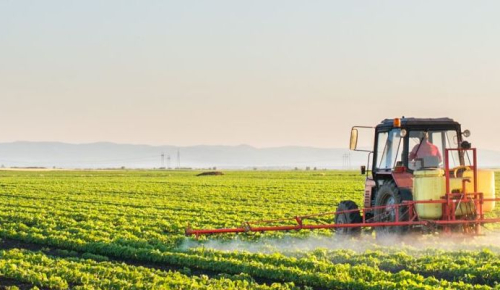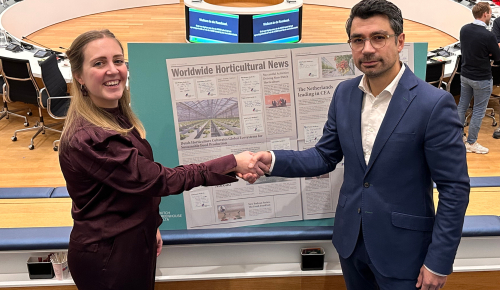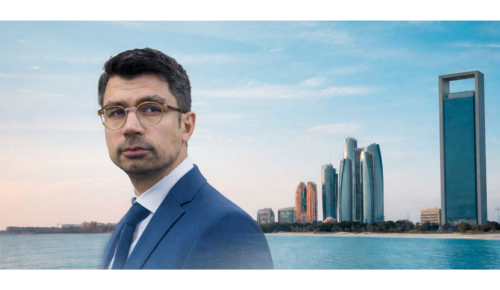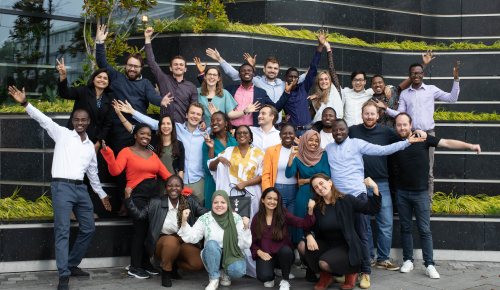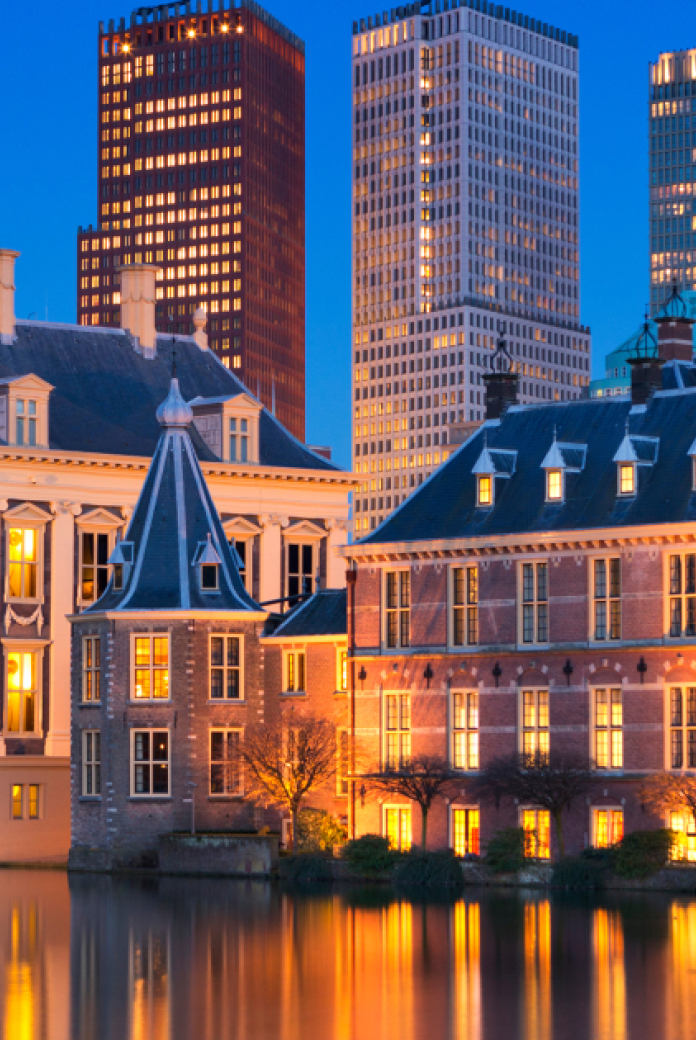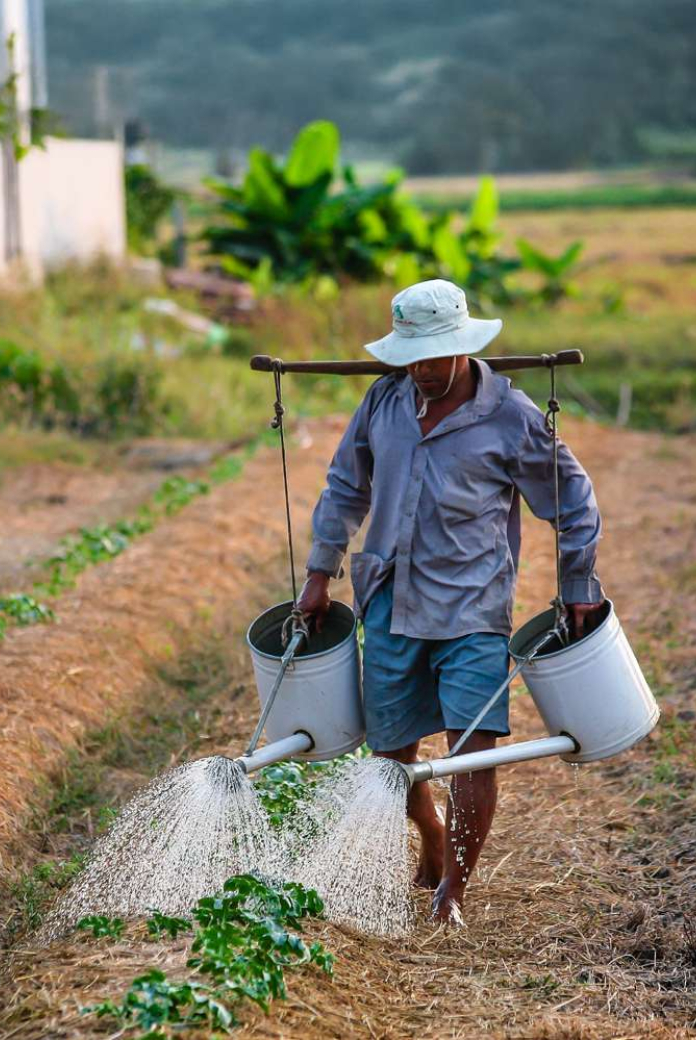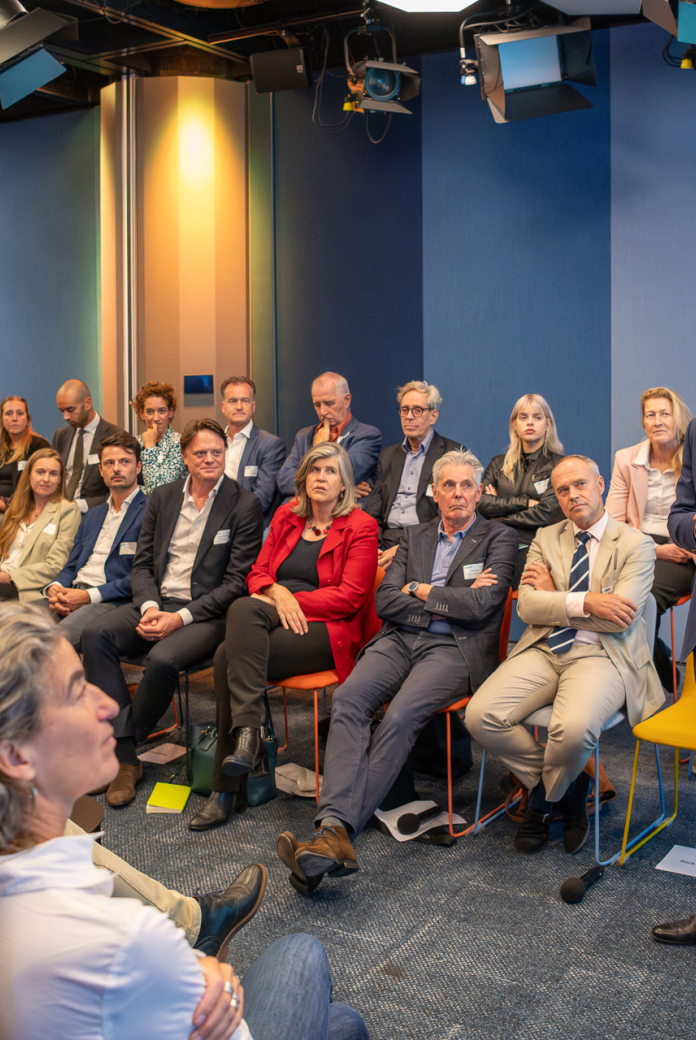Impact story
6 July 2023From Ground Pollution to Food Solutions in Uganda
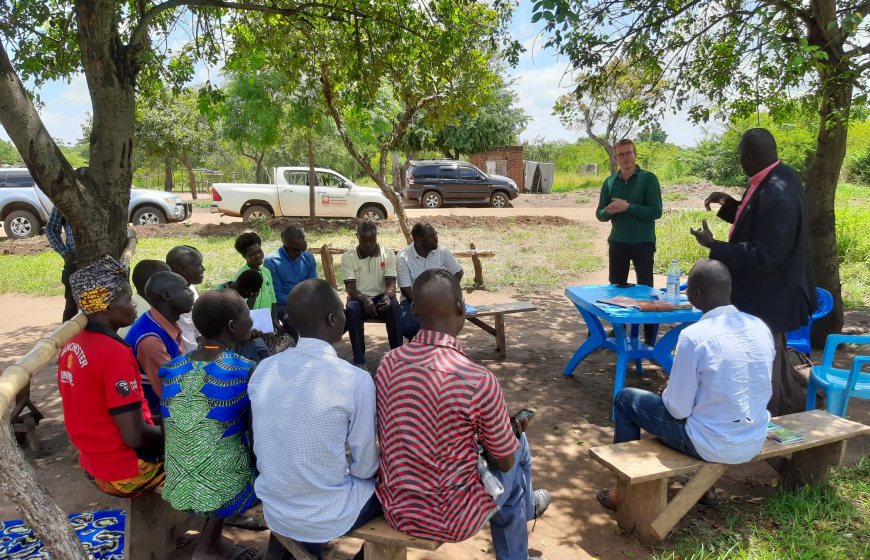

How can wastewater be turned into valuable products to grow fruit trees and vegetables? That was the key question for the Circular Refugee Camp (CRC) consortium, consisting of SEMiLLA Sanitation, SkillEd, and two local companies. About a year ago, they won the Water for Food proposal with their circular concept – also referred to as the Closed Loop Concept or CLC. This meant they received financial support for their project from the Water for Food Programme, which is initiated by the Netherlands Water Partnership (NWP) and financed by the Dutch Ministry of Agriculture, Nature, and Food Quality. The Programme stimulates and facilitates the Dutch water sector and agrifood partners to develop high-potential, sustainable, and bankable business cases in the water-agrifood nexus to improve food security.
Wastewater for productive use
Many people in Uganda live in poverty and unhealthy living conditions. Accessing clean and fresh water for drinking and running other daily household chores is difficult for much of the population. The Dutch Circular Refugee Camp (CRC) consortium aims to make communities more resilient by making water available for more productive uses (including high-value crops) to improve food security. The pilot project in the Imvepi Refugee Settlement in Uganda revolved around the circular use of waste and wastewater from pit latrines in a refugee camp in Uganda, in the form of biogas, compost, and irrigation water. These materials are inputs for an agricultural system in which fruit trees and vegetables can be grown. This completely self-sustaining model delivers affordable renewable energy while creating employment opportunities, which helps secure food availability and minimises water scarcity.
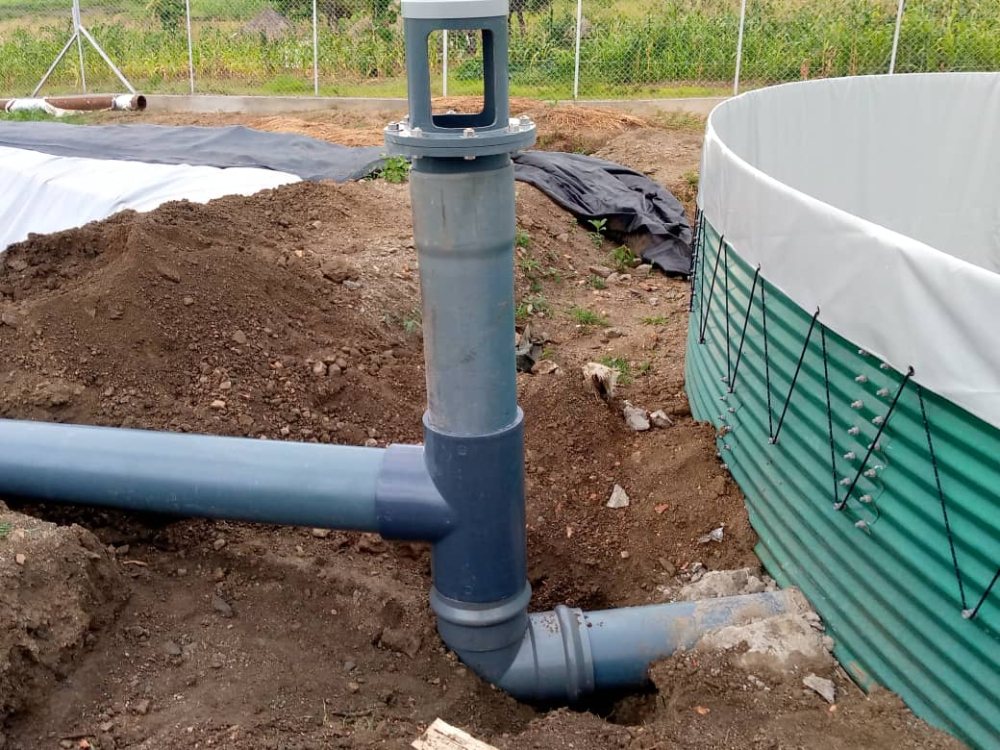
Biogas for cleaner cooking
As part of the project, a biogas production plant, a tank for sludge collection, and a drying system for the bio-compost were installed. The first batch of faecal sludge will be processed in August 2023. Immediately after this, the first biogas will be available for cleaner cooking. A few months later, daily irrigation water and compost will be made available to start the fruit tree nursery. The first 100,000 trees will then be planted, followed by 100,000 more trees half a year later. The tree nursery grows trees for food and timber and restores natural forests.
Employing the Ugandan community
Beyond the fact that this project demonstrated a very profitable business case (with a scale-up variant estimated to generate around 40k euros profit), it also employs the Ugandan community. Twenty-five farmers are willing to act as 'frontrunners' in the circular application of wastewater and have undergone technical training. About 30 farmers will derive an income from the fruit trees to be grown and around 12 people will be employed at the nursery itself. A further 12 people are also employed in the faecal sludge processing. This has led to the bio-digester project at the Imvepi Refugee Settlement to be renamed the Living Lab and Knowledge and Training Centre. The Centre is involved in continuous training and implementing and testing innovations.
Building the Living Lab installation in Imvepi has taught us key lessons for scaling up
Guus Paardekooper
CEO and co-founder of SkillEd
Equality in cooperation
Half the consortium is made up of Ugandan companies and partners. Guus Paardekooper of SkillEd explains that “All on-site activities are carried out by the local partners in close connection with preparations by the Dutch partners. The biogas plants will be prefabricated in the Netherlands but will be assembled on site. All the groundwork and other work are also carried out entirely by local workers and by local partners. Our cooperation is based on trust and equality.”
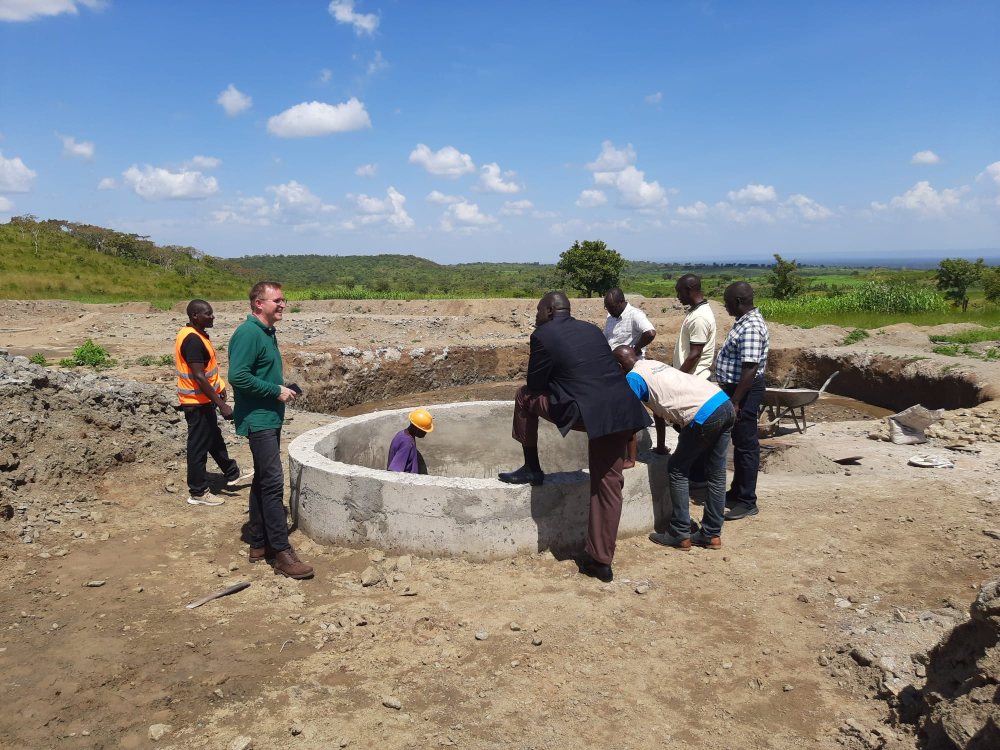
Long-term goals
To make a real impact, the decision was taken to turn SEMiLLA (Sanitation) into a concept development company and to seek cooperation with organisations that could jointly turn the concepts into practical applications with impact. This is where Nijhuis Saur Industries (NSI) came into the picture. As an industrial water solutions provider, Nijhuis will build, supply, and guarantee SEMiLLA's systems. Nijhuis' growth and network also mean growth, a network, and prominence for SEMiLLA Sanitation.
Guus Paardekooper concludes by saying “We used the insights, reports, and lessons learned from the Water for Food Programme to refine and validate parts of the business case. We used preparatory research, which we were able to carry out using other funding, to develop a complete business case by early 2023 which we submitted to DFCD (Dutch Fund for Climate and Development). In this way, we hope to gain access to funding, which is needed to scale up to 10 other locations in Uganda in the coming five to six years.”
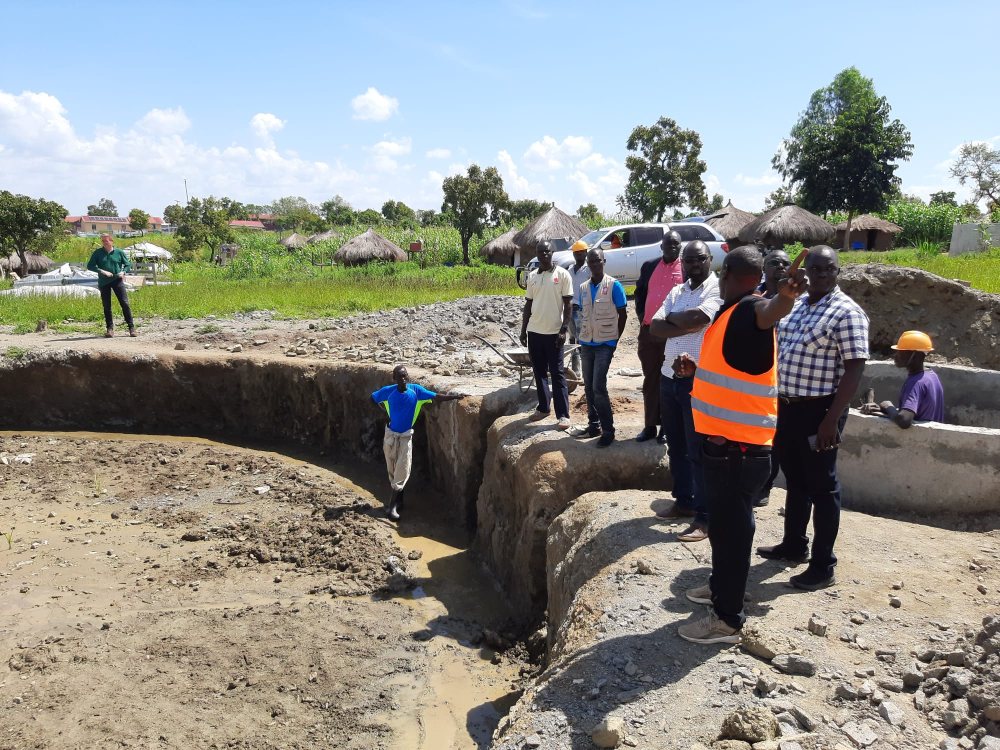
The Water for Food programme brought us crucial insights into food production and regreening. We have all ingredients needed to scale up to other locations in Uganda - and beyond
Guus Paardekooper
CEO and co-founder of SkillEd
About the Water for Food programme
The multi-year Water for Food programme seeks to catalyze the development of water-related business cases in the agri-food sector through the cooperation of Dutch water sector players in consortia, focusing on potential business cases in specific local markets internationally. This illustrates that business models can be achieved through adopting an integrated nexus approach and by focusing on the business case aspect. The longer-term objective is to establish a sustainable Water and Food hub that connects players in the water and agrifood sector to explore business opportunities and to bring successful pilots to the next stage of scaling up, replication, or adaptation to other regions. The Programme’s long-term objective is improved food security, sustainable water use, and protection of ecosystems and biodiversity. The multi-year Water for Food Programme was initiated by the Netherlands Water Partnership (NWP) and financed by the Dutch Ministry of Agriculture, Nature, and Food Quality. Read more about the Water for Food Programme.
